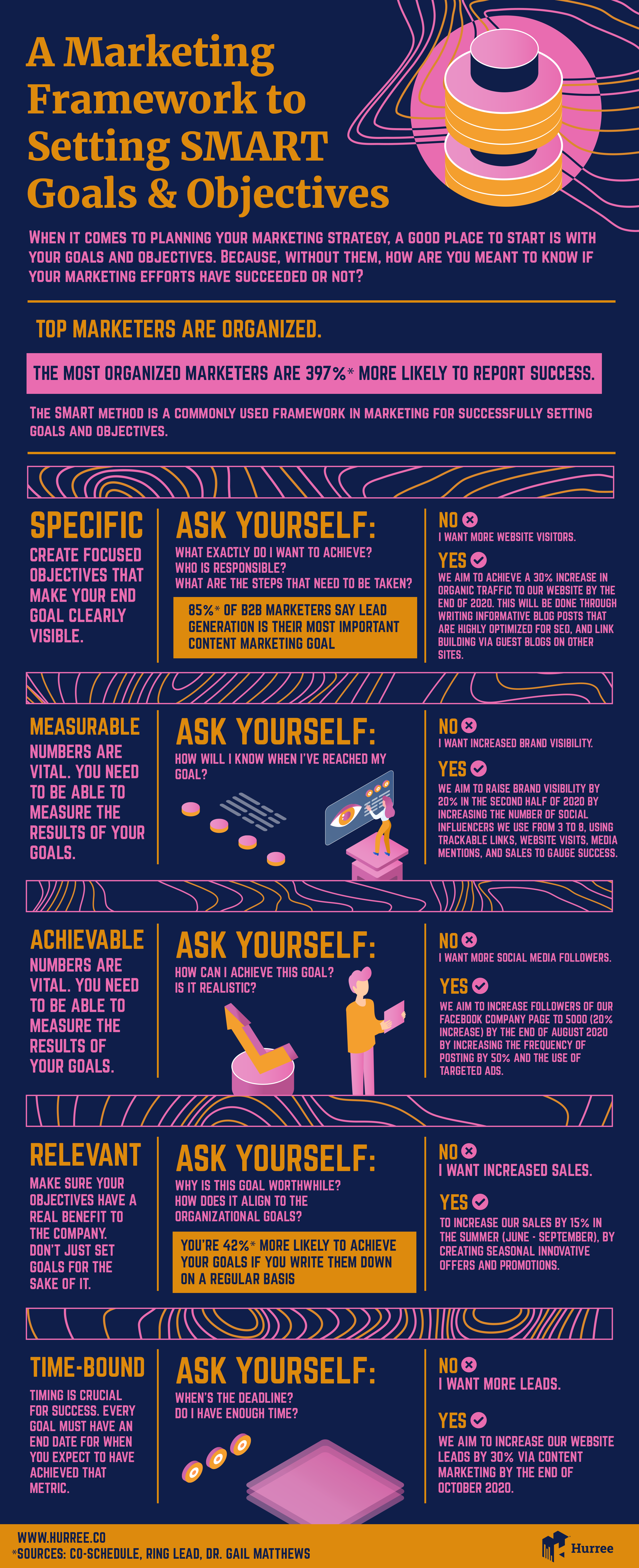When planning out your marketing strategy, it is essential to have some strategic goals and objectives in place. These will help drive what your marketing team do, as well as help measure the impact of these activities on your business and track the progress and overall effectiveness of your marketing campaigns.
Did you know, marketers who set goals and objectives are 397% more likely to achieve success, in comparison to those who don't?
But, why?
Well, it's quite simple really...
Goals provide clarity. When we know exactly what we want to achieve, then we can start to construct a plan of action to get there. How we get there might change along the way, but the destination will always remain clear. Not only will setting SMART goals keep you focused, they will keep entire teams on track too.
How to Set SMART Marketing Goals & Objectives
The SMART method is an acronym that describes the most important elements of each goal. It is a commonly used framework in marketing for successfully setting goals and objectives which stands for:
- Specific - What exactly do you want to achieve?
- Measurable - How do you know when you've achieved your goal and how will you measure it? Is it quantifiable?
- Achievable - Is the goal actually within reach?
- Relevant - Is the goal worthwhile and aligned with overall organizational objectives?
- Time-bound - What is the deadline for the goal?
The infographic below defines each of the five elements of the SMART framework, so you can discover exactly what it means to set goals and objectives that will have you headed for marketing success (as well as how NOT to set your marketing goals and objectives).

Share this Image On Your Site
